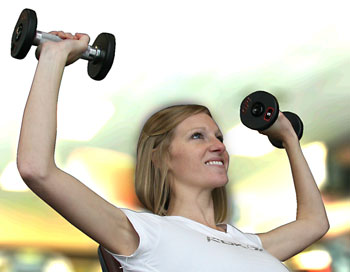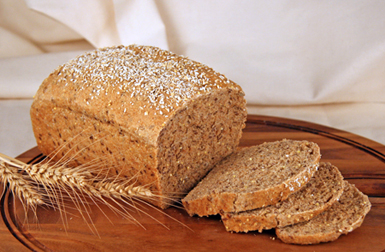Calories are energy. We need them to fuel every function of the body from powering the heartbeat to enabling one to run a marathon. When we eat food it must go through a series of processes before it can actually be utilized. These processes that the food goes through are called metabolism, or the conversion of food to usable energy.
Basal Metabolic Rate. About 60-75% of the energy the human body burns up is done so by your basal metabolic rate (BMR). BMR is the energy that is used to run normal body functions necessary to maintain life such as pumping blood, breathing, balancing hormones, and repairing cells to maintain structural components of the body such as stomach lining. So what about that remaining 25-40 % of energy you burn?
Thermodynamic effect of food and physical activity. Ten percent is burned up by something called the Thermic Effect of Food. This essentially is an energy tax on food consumption. This means your body has to use energy to digest the food itself, so as a result, the food you eat is actually burning calories before it even arrives at the metabolic state of expenditure. Finally, the remaining energy you burn up is done so through physical activity whether it is just walking to your car after work or mountain biking on the weekends.
Slow metabolism or too many calories? What about those who believe they struggle with weight because their metabolism is slow? Well, that’s not a very valid justification. In reality, it is quite rare (unless you have a medical issue such as a thyroid disorder) that one’s metabolism is ‘to blame’ for weight gain or difficulty shedding pounds. The issue is often excessive calorie consumption. We gain weight when we consume more than our BMR, thermodynamic effect of food, and physical activity all combined burn. So what can you do to resolve this issue? You can amp up your physical activity in conjunction with cutting back a little on calories.
Physical activity is key. Good news: increasing physical activity will burn more calories while you are actually working out (especially aerobic exercise) as well as increase the calorie burn during rest as your body is building muscle (especially after strength training). Muscle also burns substantially more calories than fat does so having greater lean body mass works to keep you trim.
as well as increase the calorie burn during rest as your body is building muscle (especially after strength training). Muscle also burns substantially more calories than fat does so having greater lean body mass works to keep you trim.
Reducing calories consumed. When you cut calories be wary of going overboard. Your body is smart and will recognize it is entering a period of starvation. As a result it will try to preserve energy stores and your BMR (greatest energy burner) will decrease making it difficult to lose weight. Stick to cutting about 250 calories a day to drop around four pounds per month.
Whole grains research. So how do whole grains fit into what we are talking about? A study mentioned in the Journal of the American Dietetic Association (Barr S, Wright J. Postprandial energy expenditure in whole-food and processed-food meals: implications for daily energy expenditure. J Am Diet Assoc. 2011; 111:9:A 15) suggested that eating whole foods as opposed to refined foods can significantly increase thermogenesis and thus burn about 50% more calories compared to when you consume refined foods.
Benefits of whole grains. This makes sense as the whole food requires more work to break it down when compared to refined foods because the whole food maintains a higher nutrient density. This includes higher protein, B vitamin, mineral, fiber and phytochemical content.
work to break it down when compared to refined foods because the whole food maintains a higher nutrient density. This includes higher protein, B vitamin, mineral, fiber and phytochemical content.
Not only do these characteristics of the whole grain result in increased calorie burn, but it also provides you with many disease fighting, weight controlling, and hunger combating benefits. So go with the grain and eat the whole food to reap the whole benefits.
Where are your favorite places to get your whole foods?



